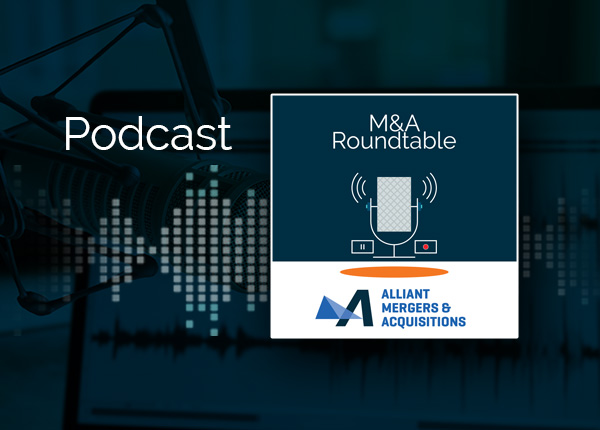Three Risk Mitigation Strategies to Consider Before Joining a Board
By Alliant
Holding a position as a board member entails significant responsibilities that, if neglected, can result in serious consequences. The board of directors bears the responsibility for every decision and direction the company takes, subjecting it and its members to scrutiny from various sources in today's fast-paced and litigious environment.
Every duly elected or appointed director of any organization has a fiduciary duty to the organization that can be broken down into four basic components:
- Duty of Care—each director must act in the organization’s best interest when carrying out his or her role as a director.
- Duty of Loyalty—directors must be loyal to the company, first and foremost, and its stakeholders.
- Duty of Obedience—directors must follow all laws and abide by all corporate ethical standards.
- Duty of Disclosure—directors must be forthright and honest with all information that may be germane to stakeholders but also the public that may be impacted by the organization’s decisions
Each of the above comes with a certain level of risk and while one can never fully eliminate all risks from any engagement, they can be reduced. Below are three risk mitigation strategies to consider before joining any board.
Consider pursuing a corporate structure that benefits directors and officer
How much do you know about the company that is seeking your participation on its board? Reviewing—or, perhaps more appropriately, having qualified counsel review—the company’s corporate governance practices to ensure they are sound is a good strategy for anyone seeking an executive position. To determine if a company’s corporate structure is solid, consider the following:
- What kind of orientation, training and education does the company provide for new directors and officers?
- Does the company have internal policies that define its ethical standards and legal guidelines?
- Who are the various people involved with the company and what areas of liability do they pose?
- Does the company have a history of Directors & Officers Liability (“D&O”) lawsuits?
Before accepting an appointment, it's crucial to thoroughly understand the company’s structure. Balancing the interests of stakeholders such as employees, customers, and shareholders can be challenging. No matter how new to a position, directors and officers may be held personally liable for poor decisions. Claiming ignorance is not a viable defense in these instances.
Request Indemnification Provisions in Your Contract
Nearly all companies offer indemnification to their directors and officers. Indemnification means that the organization reimburses a director or officer for losses incurred during their defense in a D&O lawsuit. Usually governed by the law in the state in which the company incorporated, some firms choose to expand their indemnification coverage beyond what is permitted by the state statutes. Well-written indemnification clauses attract talented directors and officers, as they are confident to make decisions knowing the organization will absorb the cost of defending their honesty and integrity.
Located in a company’s bylaws or articles of incorporation, indemnification clauses generally state what defense expenses are covered. The language of an indemnity clause is important. Be aware that many companies haven’t reviewed their indemnification provisions in years and be careful that the clause is not “boilerplate.” If the company does provide the advancement of defense fees, this should be explicitly dictated in your contract or in the bylaws. In some cases, judgment and settlement costs may also be reimbursed.
Verify whether the company would advance expenses on a permissive (discretionary) or mandatory basis:
- Permissive—Permissive indemnification means that the organization has the ability, but not the duty, to indemnify its directors and officers, and each case is reviewed by the board of directors on a case-by-case basis. Typically, this is only provided when the director or officer acts in “good faith.”
- Mandatory—Mandatory indemnification means that the organization is required to indemnify its directors and officers. The indemnified individuals do not need to demonstrate that they acted in good faith or that they were free from wrongdoing, only that the claim against them was defended successfully.
While indemnification is steadfast protection for directors and officers who act in good faith, it generally has two key limitations: - Shareholder derivative lawsuits—If a director or officer is found liable in a shareholder derivative suit, they are not indemnified because the corporation would be paying itself.
- Insolvency—Insolvency prevents a company from honoring its indemnification obligations.
Assess the Company’s D&O Insurance Coverage
Even if found innocent, settling lawsuits can be expensive and can lead to bankruptcy for a company or individual director. To mitigate such risks, companies may opt to buy D&O insurance to shield their executives and directors from legal expenses and personal liability that may not be covered by indemnification.
D&O insurance policies are not one-size-fits-all. Don't assume your new employer has the same level of coverage as your previous organization. Your primary concern should be whether the company offers D&O insurance at all.
If the company does have D&O insurance, then analyze the extent of the coverage. What are the monetary limits of coverage? Are there troublesome exclusions in the policy? Many D&O policies do not cover employment-related claims, requiring additional employment practices liability insurance (“EPL”) to cover those risks. Along the same lines, fiduciary liability coverage is an additional type of insurance that protects executive management from 3rd party liabilities related to the Employee Retirement Income Security Act.
Preparing for Your Position
A company can offer you all the necessary protections in the event of a lawsuit, but it’s a best practice to exercise personal risk management. This includes the following:
- Upholding your fiduciary responsibilities every time you make a decision
- Engaging shareholders with consistent communication
- Knowing the details of the appropriate regulations, which may include (but not necessarily be limited to) the Dodd-Frank Act, the Sarbanes-Oxley Act and the Foreign Corrupt Practices Act, that impact your company
For more information on D&O and professional liability coverage, visit Alliant.com/Managementandprofessional
Alliant note and disclaimer: This document is designed to provide general information and guidance. Please note that prior to implementation your legal counsel should review all details or policy information. Alliant Insurance Services does not provide legal advice or legal opinions. If a legal opinion is needed, please seek the services of your own legal advisor or ask Alliant Insurance Services for a referral. This document is provided on an “as is” basis without any warranty of any kind. Alliant Insurance Services disclaims any liability for any loss or damage from reliance on this document.




